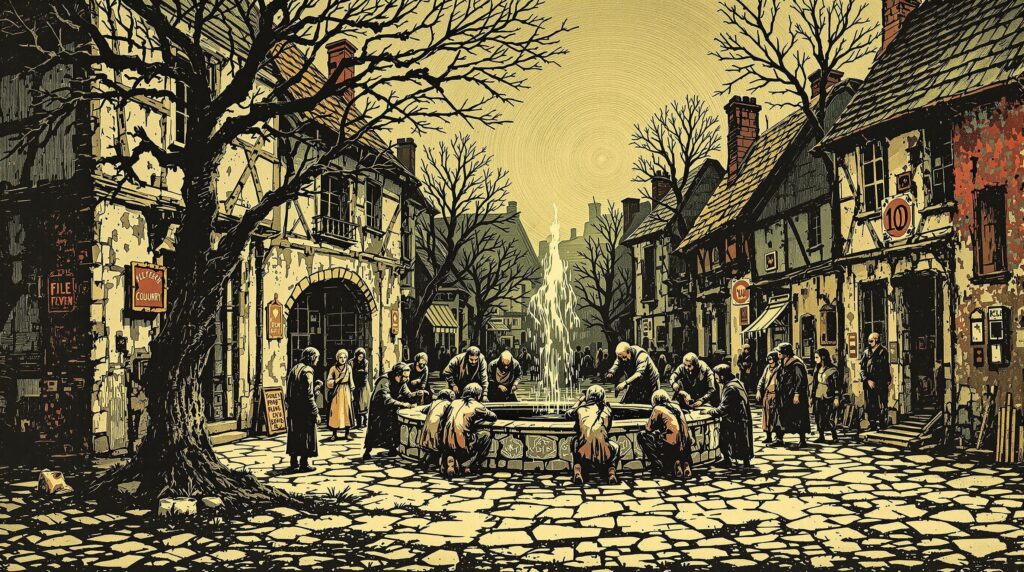In this chapter, Zarathustra conveys profound disdain for the masses, whom he refers to as the “rabble” or “mob” (“Gesindel”). The narrative is a soliloquy wherein Zarathustra laments the corruption and defilement that the rabble brings to the purity of life. He employs vivid metaphors such as poisoned wells, tainted flames, and overripe fruit to illustrate how the presence and actions of the unclean masses contaminate what is sacred and pure.

Life is a well of delight; but where the rabble also drinks, all wells are poisoned.
Zarathustra speaks of those who turned away from life to escape the defilement brought by the masses, choosing solitude over communion with the unworthy. He recounts experiences of isolation, likening himself to someone who endures thirst in the desert rather than drink from tainted cisterns alongside unclean camel drivers.
The chapter progresses as Zarathustra describes his ascension to a higher existence, a place where he rediscovers the “fountain of joy” unpolluted by the rabble. He speaks of being rejuvenated and freed from his previous nausea and weariness of spirit upon reaching this elevated state. Inviting his friends to join him, he emphasizes the exclusivity of this realm, inaccessible to the impure and unworthy. They aspire to build their nest in the “tree of the future”, drawing sustenance like eagles and living above the lowlands where the rabble resides.
